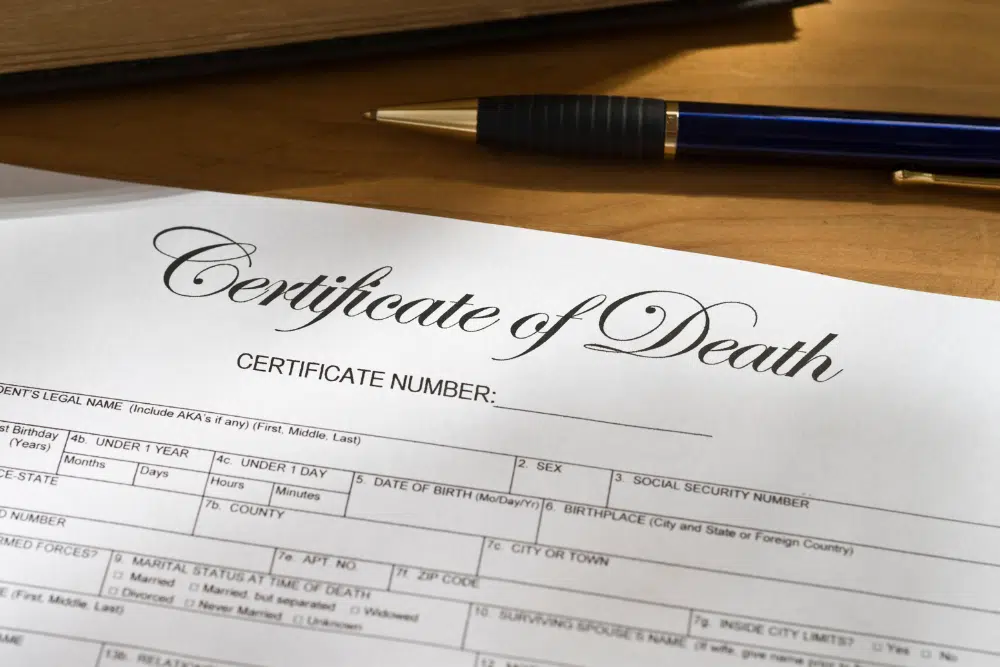Yesterday we discussed the importance of accurate information on death certificates and the errors that are too commonly made. The AMED News story on the subject explained that one big problem was a lack of proper training among physicians on best practices when completing these certificates. Doctors often are not paid for filling out the certificate, and so haste in filling out the form and unfamiliarity (at least for new physicians) can lead to mis-written details, vague information, and flat out inaccuracies making their way onto a death certificate.
As illustrated in the article, a death certificate is usually filled out by both a physician as well as a medical examiner or coroner. The doctor is usually charged with completing thing like the time, date, and cause of death. It is critical to understand the difference between the “cause” of death and the “manner” of death. The manner of death is a separate detail usually handled by the medical examiner.
The Cause of Death
The cause of death is a disease. For example, MRSA, breast cancer, pneumonia, or other situations might be a cause of death. This says nothing about the way that the disease was developed or treated. Importantly, doctors need to be as specific as possible when filling this out. For example, one professional noted that in a rush–or because of uncertainty–the doctor may provide a very general cause of death that basically provides no information. Cardiopulmonary arrest, for one, may be indicated. But one critique deadpanned, “I’ve never seen a dead person who didn’t have cardiopulmonary arrest.”
Getting an accurate and complete indication of a cause of death is incredibly important. In possible medical malpractice matters, for one thing, much of the work involves determining exactly what led to a passing and tracing back to evaluate whether medical treatments were proper in trying to prevent the death. The determination of what is (or is not) proper medical care depends on the actual ailments affecting the patient. Whether or not the death was connected to the medical care also depends, obviously, on what the exact cause of death was. Getting the cause of death information accurate on a death certificate is therefore critical.
Manner of Death
It is important to distinguish this from one’s manner of death. In general, a manner of death is either natural, accident, homicide, suicide, or undetermined. In other words, the manner of death is not what disease caused the passing, but how one acquired that medical condition in the first place. A brain injury may have caused the death, but the manner in which it develops can vary. Getting hit with a baseball bat may be homicide; falling down the stairs could be an accident; and a sudden stroke might be natural.
It is important to remember that the information in the death certificate is not conclusive proof. Instead it represents a medical opinion at a certain time. That being the case, the information contained in that death certificate is obviously important in subsequent legal cases, and so ensuring that the information is right the first time is of paramount importance.



